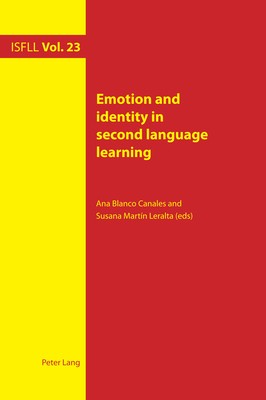
- We will send in 10–14 business days.
- Publisher: Peter Lang Ltd, International Academic Publishers
- ISBN-10: 1800796498
- ISBN-13: 9781800796492
- Format: 15.2 x 22.9 x 3.1 cm, minkšti viršeliai
- Language: English
- SAVE -10% with code: EXTRA
Emotion and Identity in Second Language Learning (e-book) (used book) | bookbook.eu
Reviews
Description
This book brings together 18 theoretical and empirical chapters that analyze the role of emotion (expression, perception, processing) and identity (notions and representations, construction, conflict) in the process of learning a second language. Studies on the differences in emotionality in L1 and L2 agree that in L2 there is an alteration that, in many cases, manifests itself as a decrease in the affective load, which can lead to a certain indifference to the emotional content transmitted and to a lesser involvement in communication. It is also known that emotion plays a fundamental role in the construction of identity in a second language, in the shaping of the self that feels and communicates, and in the ability to cope with the learning process.
Most of the studies have focused on the understanding of these two dimensions in balanced bilingual speakers, but there is little evidence on their functioning in speakers with otherdegrees of proficiency (the case of second language learners) and on their role in the learning process. Advancing in this knowledge is fundamental for the improvement of everything related to second language acquisition. We need new and innovate approaches approaches that lead to more effective programs, increased interest in language learning and the consolidation of multilingual societies.
EXTRA 10 % discount with code: EXTRA
The promotion ends in 21d.20:04:57
The discount code is valid when purchasing from 10 €. Discounts do not stack.
- Publisher: Peter Lang Ltd, International Academic Publishers
- ISBN-10: 1800796498
- ISBN-13: 9781800796492
- Format: 15.2 x 22.9 x 3.1 cm, minkšti viršeliai
- Language: English English
This book brings together 18 theoretical and empirical chapters that analyze the role of emotion (expression, perception, processing) and identity (notions and representations, construction, conflict) in the process of learning a second language. Studies on the differences in emotionality in L1 and L2 agree that in L2 there is an alteration that, in many cases, manifests itself as a decrease in the affective load, which can lead to a certain indifference to the emotional content transmitted and to a lesser involvement in communication. It is also known that emotion plays a fundamental role in the construction of identity in a second language, in the shaping of the self that feels and communicates, and in the ability to cope with the learning process.
Most of the studies have focused on the understanding of these two dimensions in balanced bilingual speakers, but there is little evidence on their functioning in speakers with otherdegrees of proficiency (the case of second language learners) and on their role in the learning process. Advancing in this knowledge is fundamental for the improvement of everything related to second language acquisition. We need new and innovate approaches approaches that lead to more effective programs, increased interest in language learning and the consolidation of multilingual societies.


Reviews